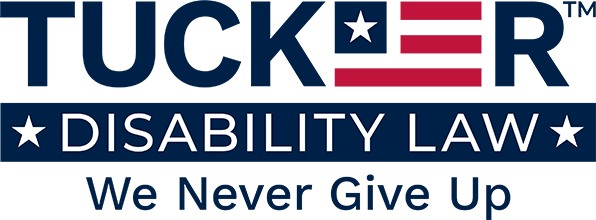You followed the instructions. You saw your doctor. You submitted the APS form.
And still—your disability insurance claim was denied.
You’re not alone. This happens every day to thousands of honest people with legitimate medical conditions.
The reason? It usually starts with one form you didn’t know was working against you: the Attending Physician Statement (APS form).
The APS Form You Were Told to Use Is a Denial Trap
If you’ve searched for “doctor’s form for disability insurance” or “attending physician statement pdf,” you’ve likely encountered the Attending Physician Statement (APS).
It’s supposed to provide your medical evidence—the basis for whether your claim is approved or denied.
But what most claimants don’t realize is this:
Insurance companies write the APS forms themselves.
And they do it in a way that heavily favors one outcome: CLAIM DENIED.
Why Insurance Companies Design the APS Form to Work Against You
Insurance companies aren’t in business to pay claims—they’re in business to collect premiums. Every approved disability claim costs them money.
By controlling the APS form design, they control the narrative. They know exactly what information they need to justify a denial, and they craft questions that make it easy for doctors to provide that information—even unintentionally.
This isn’t a conspiracy theory. It’s a business strategy.
What’s Actually Wrong with the Insurance Company’s APS Form?
At first glance, the form seems standard: checkboxes, a few lines for notes, and a handful of yes/no questions.
But it’s designed for speed—not accuracy. For simplicity—not truth.
Here’s what makes an APS form dangerous:
1. Overly Broad Questions on the APS Form
Example: “Can the patient sit, stand, or lift objects?”
That’s a loaded question. Many disabled claimants can do these actions briefly but not sustainably. Still, a rushed doctor may check “Yes,” not realizing that a single checkmark could destroy your entire case.
A proper form would ask: “Can the patient sit for 6+ hours in an 8-hour workday?” and “How frequently must the patient change positions?”
2. Yes/No Boxes Without Context
Your condition isn’t binary—but the APS form is. There’s no room to explain fluctuation, chronic pain, or limitations that occur after exertion.
For example, you might be able to lift 20 pounds once, but doing so might leave you bedridden for days afterward. The standard APS form provides no way to document this reality.
3. Tiny “Additional Comments” Section
Sometimes, just two or three lines are provided for a doctor to summarize your entire disability. It’s simply not enough.
Your medical condition likely has many dimensions: physical limitations, medication side effects, symptom fluctuations, and treatment complications. How can a doctor adequately explain all this in three lines?
4. No Functional Testing Requirements
There’s no directive for clinical testing on a standard APS form. Doctors can guess based on chart notes, which creates vague or unreliable documentation.
Proper disability evaluation requires objective measurement of your capabilities—not just a doctor’s impression during a brief office visit.
5. No Safeguards Against Bias
Many doctors don’t understand disability law. Some fill out the form with little thought. Others, paid by the insurer, simply side with them.
The APS form doesn’t remind doctors about their legal and ethical obligations to document accurately. It doesn’t explain how their answers will be used to determine your financial future.
APS Form Completion: It’s Not Your Doctor’s Fault—It’s a Broken System
Your doctor may care deeply about your health. But they’re not trained to handle disability insurance games.
Most physicians receive zero training on completing disability paperwork. They don’t know the legal definitions that matter. They don’t understand how insurance companies interpret their responses.
The insurer is counting on that confusion.
The result? You get denied—not because you’re not disabled, but because the wrong form didn’t tell the right story.
How Tucker Disability Law Overcomes the APS Form Problem
We’ve reviewed thousands of APS forms.
We’ve cross-examined the insurance company’s “independent” doctors.
And we’ve seen, case after case, how this system is built to fail honest people.
That’s why we built something they can’t control.
It’s called the Tucker Disability Benefits Victory Blueprint™—a proven, aggressive, three-step strategy based on 30+ years of experience and thousands of successful cases.
We don’t just react. We anticipate and neutralize their tactics.
The Benefits Victory Blueprint™: How We Win Against Faulty APS Forms
Step 1: Arm Your Doctor with the Right APS Form Alternative
We replace the insurer’s vague form with one tailored to your condition. It includes functional testing, real documentation fields, and the exact language insurers can’t ignore.
Our proprietary forms include:
- Condition-specific questions that address your actual limitations
- Clear definitions of terms like “occasional” and “frequent”
- Space for explaining symptom variability
- Sections for documenting medication side effects
- Fields for cognitive and emotional limitations
Step 2: Guide the Doctor—Or Replace Them
We help your doctor complete it properly—or we refer you to one who can. No more guesswork. No more errors that cost you everything.
Our team educates your physician on:
- How disability definitions apply to your case
- What objective evidence is needed
- How to document symptoms insurance companies typically dismiss
- The importance of function over diagnosis
Step 3: We Take Over the Fight
Once your medical proof is locked in, we handle the rest: adjusters, appeals, litigation. You heal, and let us fight for you.
Our attorneys:
- Anticipate and counter insurance company tactics
- Handle all communication with the insurer
- Prepare for litigation from day one
- Shield you from stressful interactions
- Ensure every deadline is met perfectly
That’s the heart of our Benefits Victory Blueprint™.
Example of an APS Form Disaster: Sarah’s Story
Sarah, a former surgical nurse, developed severe rheumatoid arthritis. Her hands would swell unpredictably, making fine motor tasks impossible some days.
Her doctor checked “Yes” to “Can the patient use their hands for fine manipulation?” on the APS form.
What the form didn’t capture: She could do this only on her good days, which were unpredictable, and never reliably enough to maintain employment.
Result: Claim denied. Six months without income. Foreclosure proceedings began.
After finding us, we submitted our specialized documentation form. Approval came within 30 days. Sarah kept her home and received full back benefits.
The True Cost of Using the Wrong APS Form
What Happens If You Use Their APS Form?
- Denied—again
- No income, no backup, no safety net
- Bills rising, health worsening, no end in sight
- One form stands between you and financial survival
- Months or years fighting a system designed to exhaust you
- Potential loss of home, savings, and dignity
What Happens If You Use Our System?
- Your doctor documents your condition correctly
- You get medical proof insurers can’t ignore
- We run the strategy. You get your benefits
- You stop fighting alone—and start winning
- You can focus on your health instead of paperwork
- Financial stability returns to your life
Don’t Let a Flawed APS Form Steal Your Benefits
The insurance company is counting on you not knowing the rules of their game.
They’re betting you’ll follow their playbook—their forms, their process, their timeline.
But you don’t have to.
With Tucker Disability Law, you get:
- 30+ years of experience fighting insurance companies
- A team that has seen every trick and tactic
- Attorneys who speak the language of disability law fluently
- A proven system for turning denials into approvals
Tucker Disability Law wins where others lose because we never stop fighting
Their APS form is built to deny you. Our strategy isn’t.
Don’t gamble your financial security on paperwork designed to fail you. The insurance companies have spent decades perfecting the art of denial—we’ve spent just as long mastering the science of approval.
Your health condition is real. Your limitations are legitimate. Your need for benefits is justified. But none of that matters if the documentation doesn’t tell the true story of your disability.
With our system, your medical evidence becomes bulletproof. Your doctor becomes your strongest advocate. And the insurance company loses its favorite excuse to deny you.
If you’re filing a claim or facing a denial, let us show you what thousands already know: Our Benefits Victory Blueprint™ works.
The difference between struggle and security is just one decision away. Choose the team that puts your recovery first and the insurance company’s tactics last.
Take Action Now: Use the blue contact section to call us, live chat with us, or message us. You can also message us using our confidential contact form







